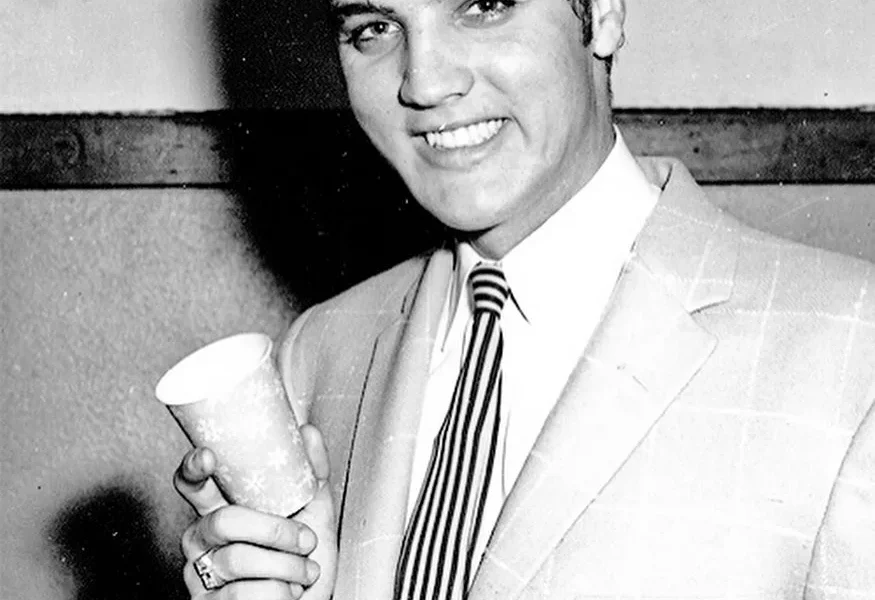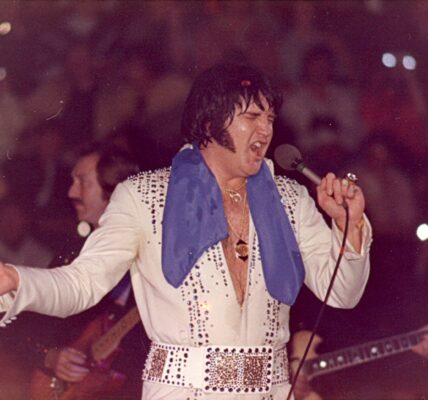“Tomorrow Night” is a captivating ballad by Elvis Presley, originally recorded in the early 1950s but released later in 1965 as part of the Elvis for Everyone! album. The song, a mixture of longing and uncertainty, carries a deeply emotional tone that highlights the vulnerability often found in Elvis’s more heartfelt performances. With its simple yet evocative lyrics, “Tomorrow Night” taps into the universal theme of waiting, hoping, and the unknown future of love.
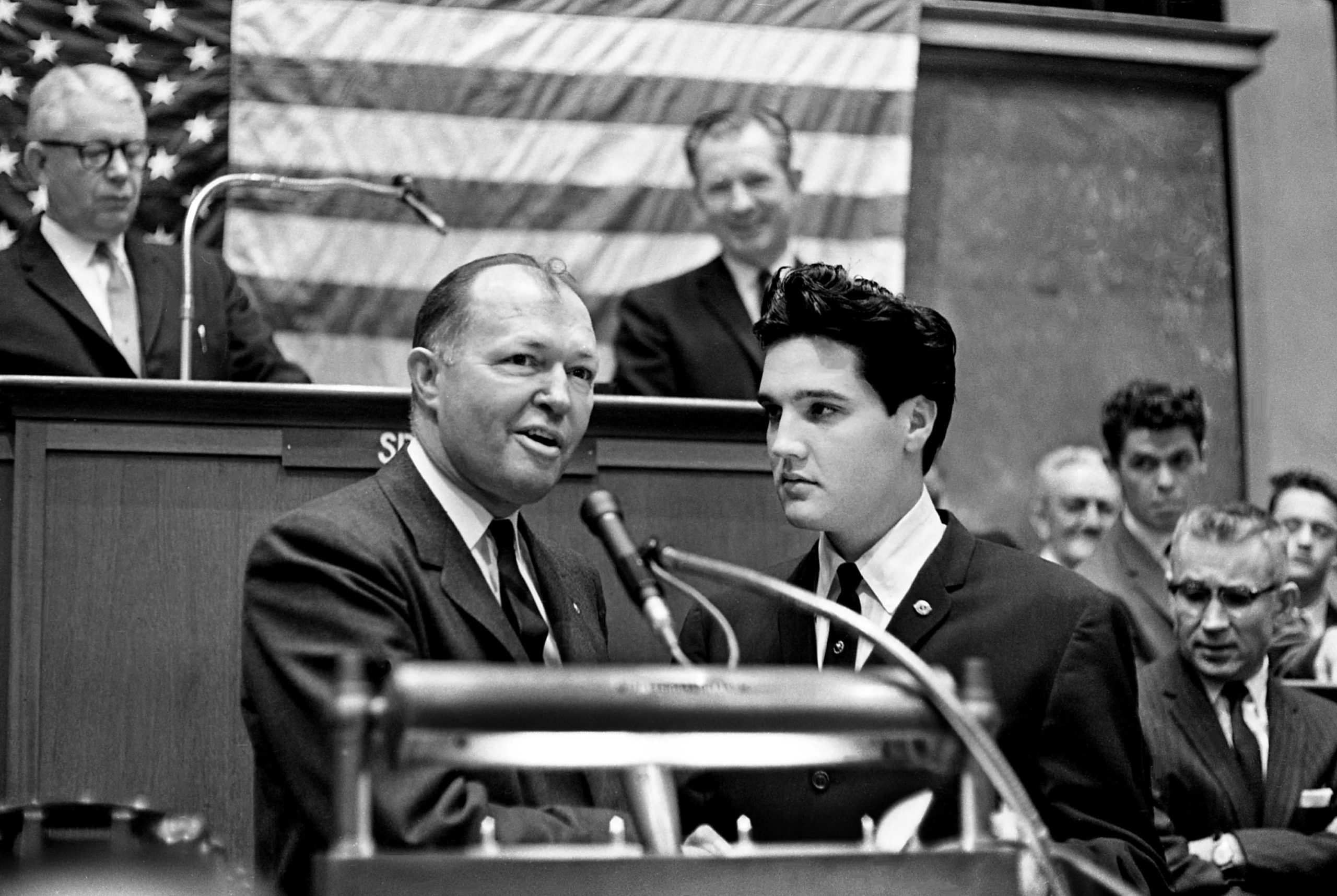
The song’s premise revolves around the anticipation of reuniting with a loved one. The narrator anxiously wonders what the next day will bring—whether the promise of love will be fulfilled or if they will be left with disappointment. This emotional tension is heightened by the slow tempo and minor key, giving the track a haunting quality. Elvis’s voice, rich with passion and sincerity, conveys the weight of the narrator’s emotions, bringing listeners into the heart of the story.
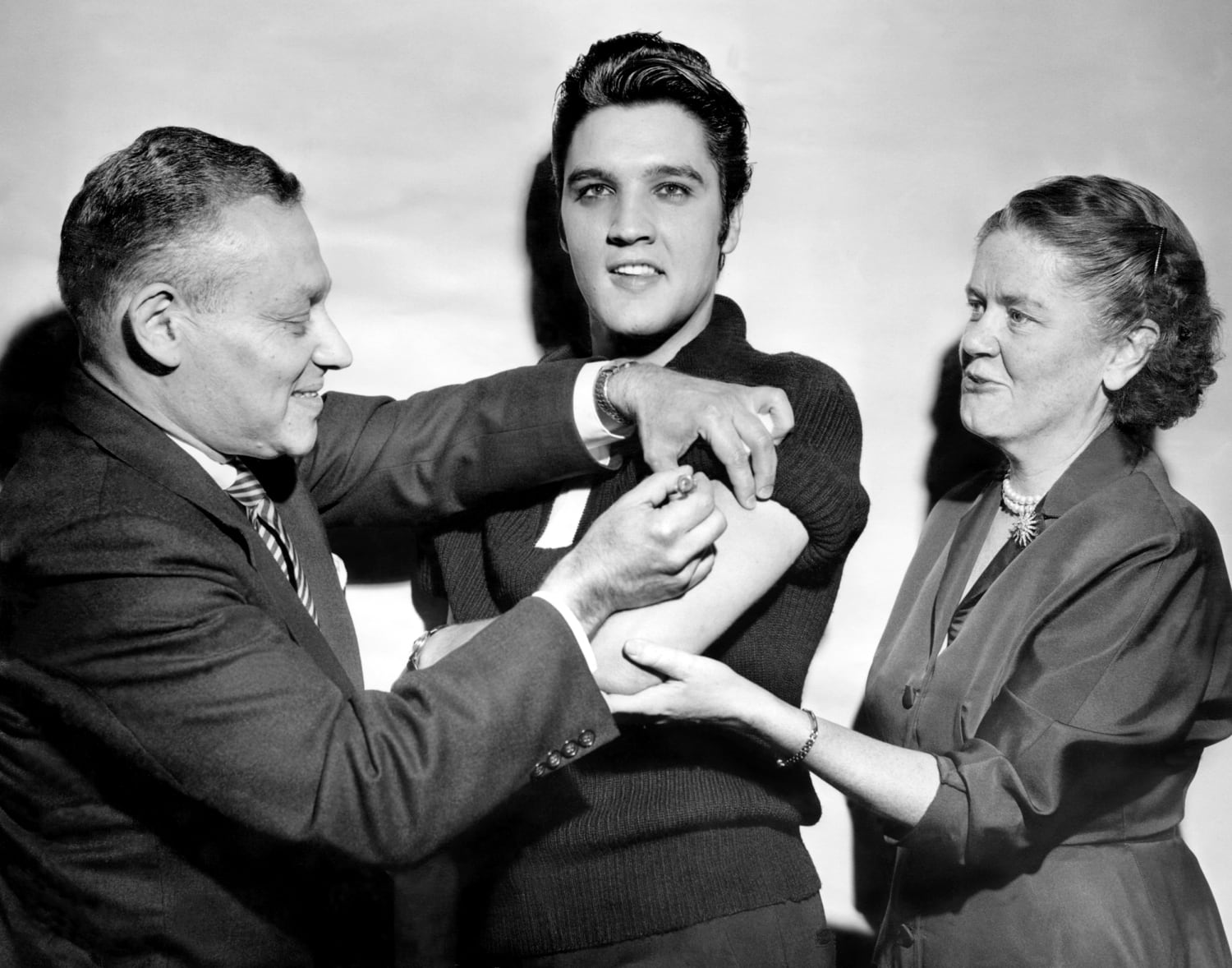
Musically, “Tomorrow Night” is a blend of blues, country, and early rock and roll influences, typical of many of Elvis’s ballads from the 1950s. The arrangement is relatively simple, with a focus on Elvis’s vocals, supported by gentle guitar strumming and subtle piano chords. The sparse instrumentation allows the song’s emotional depth to take center stage, emphasizing the themes of longing and vulnerability.
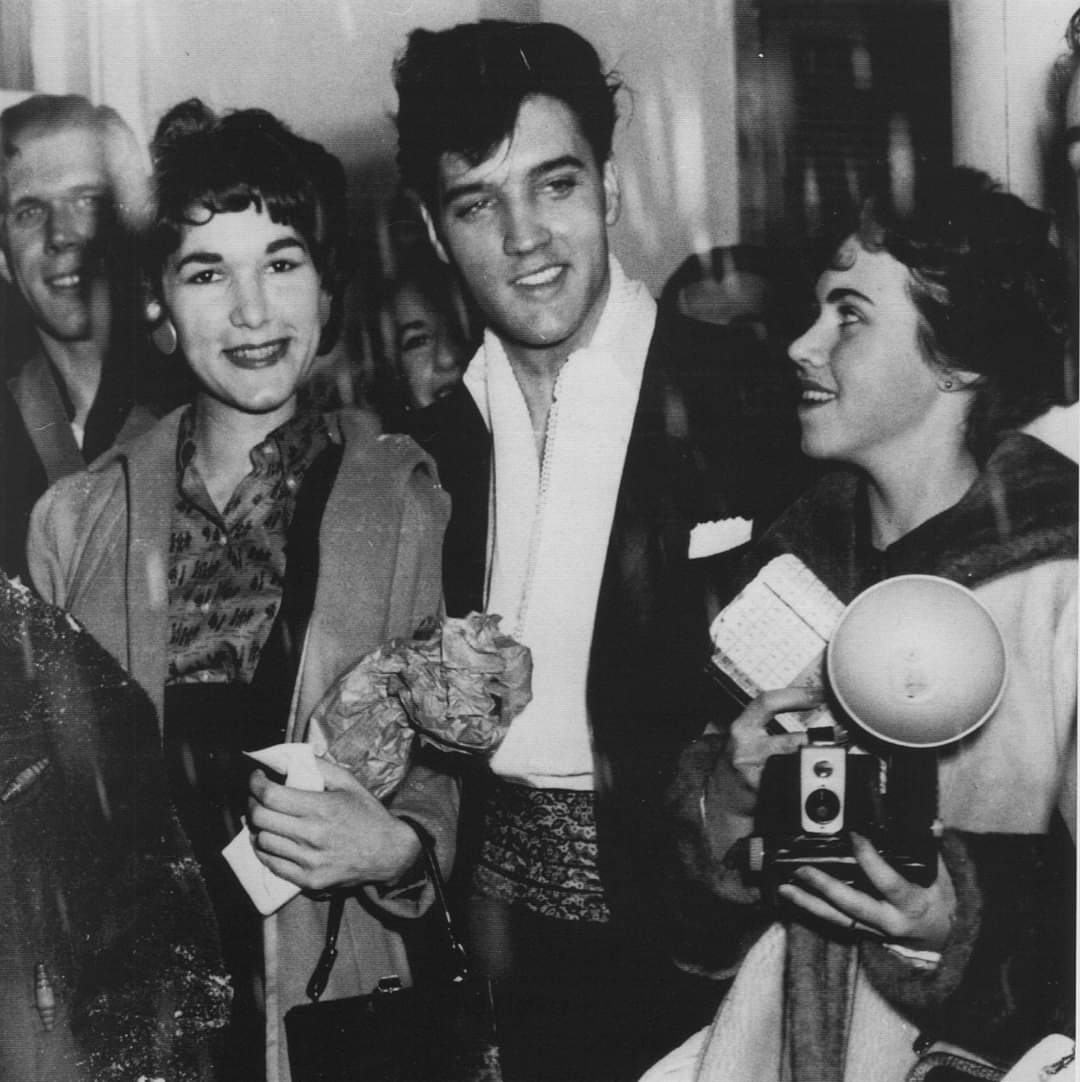
Elvis’s vocal performance in “Tomorrow Night” is remarkable for its restrained yet powerful delivery. He expertly captures the feeling of uncertainty and hope, delivering each line with a sense of urgency and emotion. His ability to convey such complex emotions with subtlety is a testament to his skill as a performer and his deep connection to the material. Fans of Elvis’s more reflective and introspective songs will find “Tomorrow Night” to be a shining example of his range and versatility.
One of the song’s enduring appeals is its relatability. The emotions expressed in the song—waiting for a lover, feeling uncertain about the future, and grappling with the fear of heartbreak—are universal experiences. Elvis taps in to these feelings effortlessly, making the song resonate with listeners from all walks of life.

In conclusion, “Tomorrow Night” is a beautifully crafted ballad that showcases Elvis Presley’s ability to convey deep emotions through his music. With its haunting melody, heartfelt lyrics, and Elvis’s powerful vocal performance, the song remains a poignant piece in his discography. It captures the essence of longing and uncertainty in love, reminding listeners of the emotional complexity that Elvis could bring to even the simplest of songs.
Elvis Aaron Presley, often referred to as the “King of Rock and Roll,” was born on January 8, 1935, in Tupelo, Mississippi, USA. He rose to prominence in the mid-1950s, becoming one of the most iconic and influential figures in the history of popular music. Presley’s musical journey began at an early age when he started singing in church and listening to various genres of music, including gospel, blues, and country. In 1954, he signed a recording contract with Sun Records, where he began his career blending elements of rockabilly, rhythm and blues, and country music. His breakthrough came with the release of his first single, “That’s All Right,” followed by a string of hits such as “Heartbreak Hotel,” “Hound Dog,” and “Jailhouse Rock.” With his charismatic stage presence, distinctive voice, and provocative dance moves, Presley captured the hearts of audiences worldwide, revolutionizing the music industry and popular culture. Presley’s impact extended beyond music; he also found success as an actor, starring in a series of films throughout the 1960s. Despite his commercial success, he faced criticism from some quarters for his crossover into mainstream entertainment and the perceived dilution of his musical authenticity. Throughout his career, Presley struggled with the pressures of fame, leading to personal challenges, including substance abuse and health issues. Despite these obstacles, he remained a beloved figure, revered for his contributions to music and his enduring legacy. Tragically, Elvis Presley passed away on August 16, 1977, at the age of 42, leaving behind a legacy that continues to resonate with generations of fans. He was posthumously inducted into the Rock and Roll Hall of Fame, and his music remains a timeless testament to his enduring talent and cultural impact.
